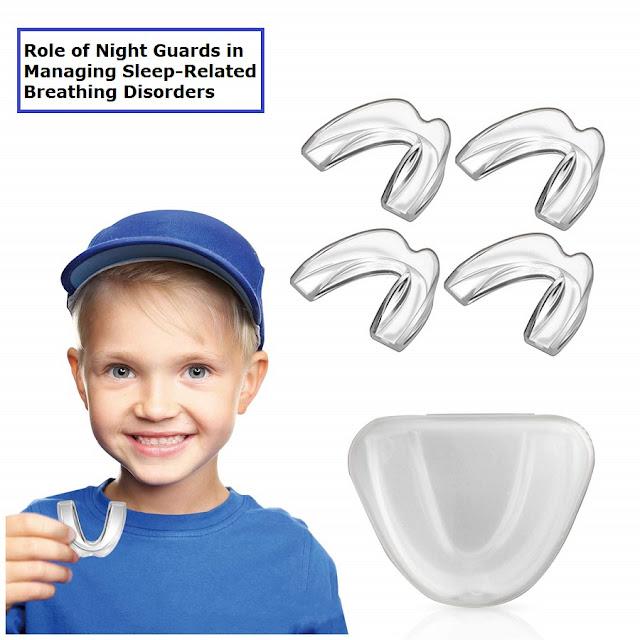Sleep - an essential human requirement often disrupted by sleep-related breathing disorders, has pushed medical experts and researchers to explore effective strategies to manage these conditions. One prominent solution recently gaining attention is the night guard or sleeping mouth guard. These devices have shown significant promise in improving sleep quality for individuals with sleep-related breathing disorders.
Unravelling Sleep-Related Breathing Disorders
Before delving into how
night guards can help, it's crucial to understand the specifics of
sleep-related breathing disorders. The spectrum of these disorders spans from
well-known conditions like sleep apnea and snoring to less familiar ones such
as upper airway resistance syndrome and hypoventilation.
Snoring: While often
overlooked as a simple disturbance, chronic and intense snoring could signify a
deeper, more significant health issue. It's crucial only to dismiss snoring
with proper medical consultation.
Sleep
Apnea: This condition is characterised by frequent interruptions in
breathing during sleep. When the airway closes during sleep, it can result in
potentially harmful breathing pauses lasting from a few seconds to minutes.
Hypoventilation: This
disorder involves a prolonged breathing rate, which can lead to increased
carbon dioxide levels in the bloodstream.
Upper
Airway Resistance Syndrome (UARS): In UARS, the airway
narrows during sleep, leading to increased effort to breathe and thus causing
disruptions in the sleep cycle.
The Mechanics of Night Guards
Night guards are
designed with care and precision to improve nocturnal breathing. The devices function
by slightly advancing the position of the jaw, a manoeuvre that opens up the
airway to facilitate easier and less interrupted breathing. This minor yet
strategic shift can lead to substantial improvements in the quality of sleep
and, consequently, the overall health and well-being of the user.
The Power of Night Guards: A Closer Look
A night guard or sleeping mouth guard can make a
difference in managing these disorders. They provide an array of benefits,
offering a non-invasive, cost-effective approach to enhancing sleep quality:
Opening
the Airway: Night guards work by holding the lower jaw forward during
sleep. This configuration effectively facilitates easier breathing by
preventing the throat's soft tissues from collapsing and clogging the airway.
Improved
Breathing and Oxygenation: Night guards are crucial in improving breathing patterns during
sleep. These devices enhance airflow by keeping the airway open, ensuring a
constant supply of oxygen throughout the night. This reduces the frequency and
intensity of apnea events and helps improve blood oxygen levels, promoting
overall cardiovascular health.
Reducing
Snoring: Snoring can disrupt the snorer and their sleep partner. Night
guards effectively reduce snoring by maintaining proper alignment of the jaw
and preventing the collapse of the airway. This allows individuals and their
partners to enjoy a more restful and undisturbed night's sleep.
Preventing
Teeth Grinding: Teeth grinding, also known as bruxism, often co-occurs with
sleep apnea. Night guards can help mitigate this, protecting teeth from damage.
Enhancing
Sleep Quality: Sleep-related breathing disorders can significantly impact
sleep quality and lead to daytime sleepiness and fatigue. By addressing airway
obstructions, night guards help individuals experience uninterrupted sleep,
improving daytime alertness and overall quality of life.
Conclusion: Night Guards as a Game Changer
While sleep-related
breathing disorders can significantly disrupt sleep quality and overall life,
night guards have emerged as an efficient and practical tool for managing these
conditions. If you or somebody you know is grappling with sleep-related
breathing disorders, considering the potential benefits of a night guard might
be a step in the right direction. After all, a good night's sleep is not merely
a luxury but a fundamental human need.









.jpg)


0 Comments